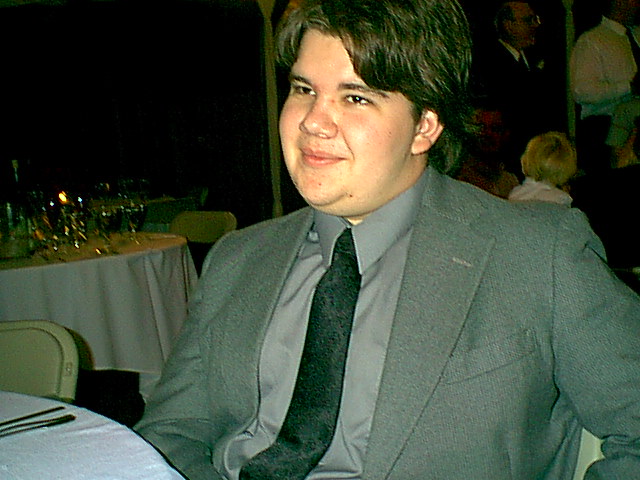 How is a life of natural learning "done" though? When is "graduation" for an unschooler?
How is a life of natural learning "done" though? When is "graduation" for an unschooler? As I write this, my children are 17, 15 and 12. Now when I'm pooh-poohed, it's by people saying, "You couldn't really understand the problems of a mother with several very young children in the house, since all of yours are older."
You do the math.
I entered the world of unschooling with a five year old. I'm about to peek out the other end, as Kirby turns 18 this summer.
Were we using a curriculum, Kirby would "graduate" by finishing the senior-level coursework. And it might have been last year, or next year. There are 18 yr olds still in high schools, all over the country. But let's say he had done that, and finished "on schedule." He would have the equivalent of a public high school education now, and be done.
 How is a life of natural learning "done" though? When is "graduation" for an unschooler?
How is a life of natural learning "done" though? When is "graduation" for an unschooler?
A few years ago, I used to think a big 18th birthday party, maybe all weekend at a lodge in the mountains, could serve as a rite of passage. The more my husband and I discussed the purposes and reasons, the less clever the plan seemed. We didn't want to draw a line between his childhood and "being grown," with its implications of "we've finished our job," or "time to move out!"
So just as I can calmly say "We don't do grades, but Holly is twelve," I will just start saying, "He's eighteen." Not "He graduated from homeschooling."
It baffled me. I wanted to be in college. I had gone early, and finished in four years. I was 20. But looking back, the glorious thing about college for me was the music, the art, the freedom of movement among people who were from places other than my hometown, who knew things I didn't know, and who would stay up late and talk about life, and the world, and how people are. My kids have had those things all their lives.
My husband, Keith, finished college at 30 after years of changing majors, having a rich and interesting life, holding jobs that paid little but from which he learned a lot and met interesting people. That was quite a while ago—a lifetime, in Kirby-terms. For years now he has been an engineer, respected by colleagues, and secure in his career. They don't care that it took him twelve years to finish college.
Most readers here could probably name friends who have expensive degrees they don't use, and other successful, happy friends without college credit, or college expenses.
So back to this never-schooled seventeen year old at our house.
Will he go to college? Maybe.
In September this year? No.
Are we worried? No.
Maybe we're surprised not to be worried.
Maybe he wants to be a programmer, or a lawyer, he has said. He's not in a hurry. He might like to take some classes in the winter, at TVI (a technical school near our house that offers basic classes transferable to the university in town).
The calm surrounding all this surprises me, but it shouldn't. We weren't too worried when he read "late" (meaning later than we thought he might; he was nearly nine). We didn't withhold our regard as he made various choices in his life, and he has impressed us and others many times with his competence and demeanor. Adults trust him. Kids like him. Not all people his age have even that, but Kirby also has a job he has had for four years. That's longer than some adults have held a job. He works at a gaming shop, and so he is surrounded by bright, interested and interesting people. He is active at the karate dojo he attends. He teaches a beginning class once a week. Some his age will take karate for the first time in college, if their parents let them study anything so frivolous.
I would rather Kirby never go to college than to go without a reason to go. I would rather he continue to learn from experiences around him, from reading, the internet, friends, movies and direct observation than to borrow a bunch of money (or spend ours) to attend college just because his grandparents or uncles or my neighbors might be impressed. If he did that, I would start to wonder if maybe he wasn't as bright as we liked to think.
But if and when he has a desire or need to go, we will support him fully. If he enrolls, it will be because he has a reason to go, and has made a free choice. Those factors will create an entirely different experience from some of those around him who were pressured to go and are now angry with their parents and the world. And he doesn't have the motivation to get as far from home as he can. He likes home.
Why am I surprised? It is just more of the continuum of life off the assembly line.
More on Kirby: SandraDodd.com/kirby

Unschooling Teens

Considerations for unschooling parents